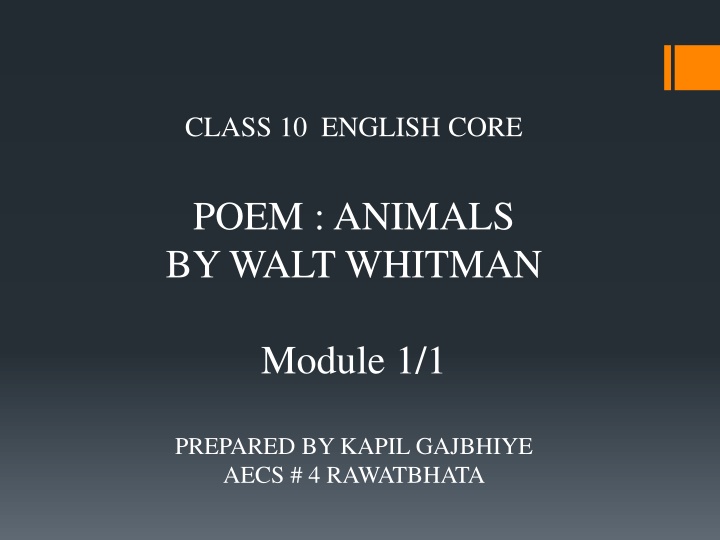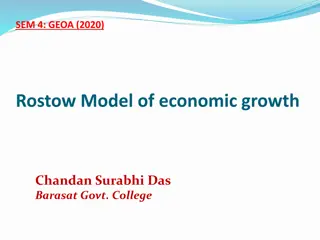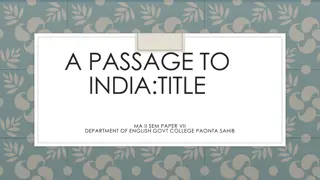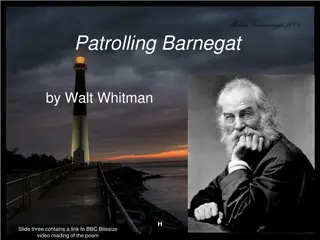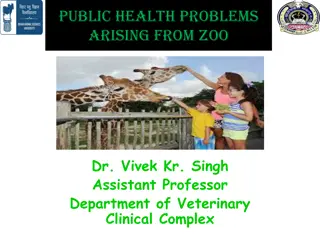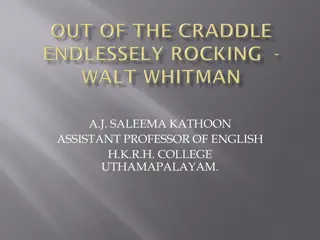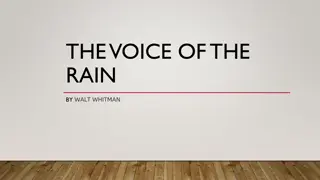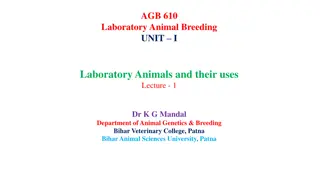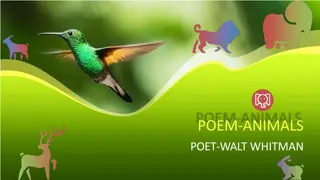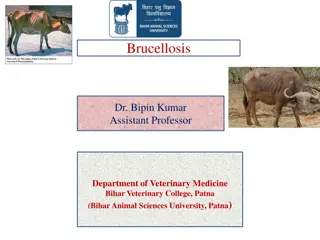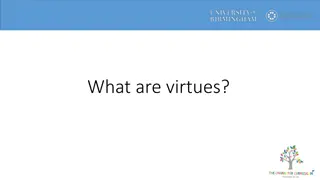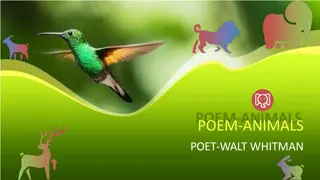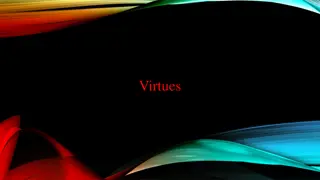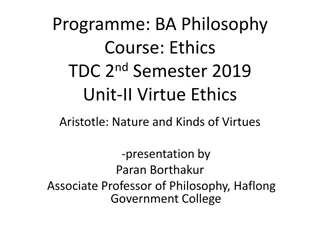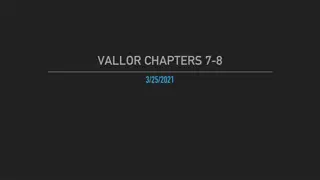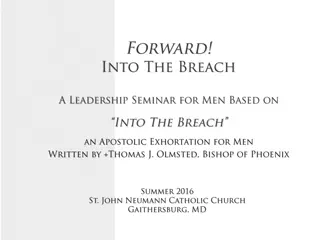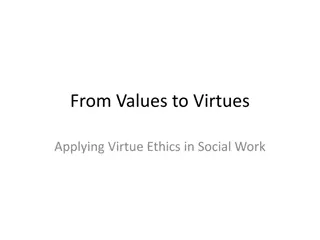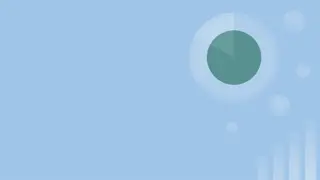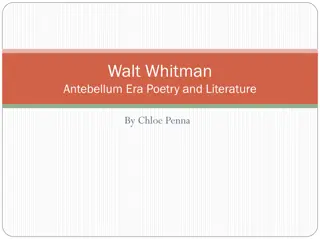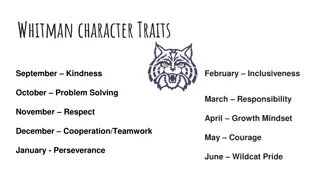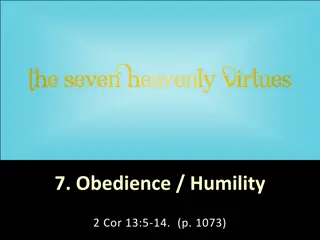Animals by Walt Whitman: Embracing the Virtues of Animals Over Humans
Walt Whitman's poem "Animals" expresses a longing to live among animals due to their peaceful and self-controlled nature, contrasting them with the perceived greed and jealousy of humans. The poet finds solace in the virtues displayed by animals and reflects on their simplicity and contentment, highlighting a desire to align with their serene lifestyle.
Download Presentation

Please find below an Image/Link to download the presentation.
The content on the website is provided AS IS for your information and personal use only. It may not be sold, licensed, or shared on other websites without obtaining consent from the author.If you encounter any issues during the download, it is possible that the publisher has removed the file from their server.
You are allowed to download the files provided on this website for personal or commercial use, subject to the condition that they are used lawfully. All files are the property of their respective owners.
The content on the website is provided AS IS for your information and personal use only. It may not be sold, licensed, or shared on other websites without obtaining consent from the author.
E N D
Presentation Transcript
CLASS 10 ENGLISH CORE POEM : ANIMALS BY WALT WHITMAN Module 1/1 PREPARED BY KAPIL GAJBHIYE AECS # 4 RAWATBHATA
POET: WALT WHITMAN (AMERICAN POET) 1819-1892
Introduction of Walt Whitman American Influential Writer Poet, Essayist & Journalist Humanist Transition Poet
Famous Poems O Captain! My Captain! O Me! O Life! Out of the Cradle Endlessly Rocking I Hear America Singing Out of Rolling Ocean the Crowd
Key Ideas of the Poem Animals Are Far Better Than Human Beings Human Beings Are Greedy And Jealous Animals Are Calm And Composed They Are Self-controlled Own Virtues
Animals I think I could turn and live with animals, they are so placid and self-contain d I stand and look at them long and long. They do not sweat and whine about their condition, They do not lie awake in the dark and weep for their sins, They do not make me sick discussing their duty to God, Not one is dissatisfied, not one is demented with the mania of owning things, Not one kneels to another, nor to his kind that lived thousands of years ago,
Not one is respectable or unhappy over the whole earth. So they show their relations to me and I accept them. They bring me tokens of myself, they evince Them plainly in their possession I wonder where they get those tokens, Did I pass that way huge times ago and negligently drop them? Walt Whitman (From Song of Myself in Leaves of Grass)
Explanation of the Poem Poet s Wish: To Turn To Animals & To Join The Company Of Animals Animals Possess Virtues Like Peacefulness And Self-restraint Greed For Worldly Possessions And Achievements Fascinated By Their Self-contained Nature Content In Their Own Lives
Humans Have Despair And Despondency Animals Do Not Cry Out For The Things They Lose Animals Do Not Get Involved In Misdeeds They Have No Regret For Anything.
No Boastful Talk No Duty To The Almighty No Purpose Of Wining Other People s Applause And Popularity Animals Are Never Dissatisfied Like Humans Contented With Whatever They Have
No Hierarchy In the World Of Animal One Inferior Nor Is Any One Superior. No One More Important Or Insignificant No One More Important Or Insignificant They Practice The Principle Of Equality Never Extremely Happy Or Sad
They Are Honest In Exhibiting Their Relations To Other Animals Walt Whitman Takes To Contemplation Got All Those Wonderful Qualities Lost Those Qualities Human Beings Did Possess Those Qualities Viz. Truthfulness, Innocence, Kindness etc. They Turned Over To The Animals
FIGURES OF SPEECH Repetition: Repetition of words/phrases/line(s) in the poem is called Repetition. Examples: 1. I stand and look at them long and long 2. They do not 3. Not one is Alliteration: It is the repetition of a consonant sound at the beginning of words in the same line. Examples: I wonder where they get those tokens.
Personification: It is a figure of speech wherein non-living things are assigned humanly qualities. Almost every line has personification in the poem. Examples: They do not .. sweat and whine They do not.. lie awake . ..they are so placid and self-contain d.
